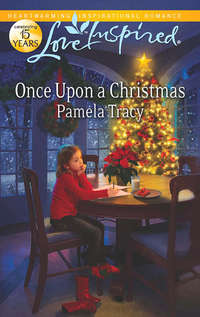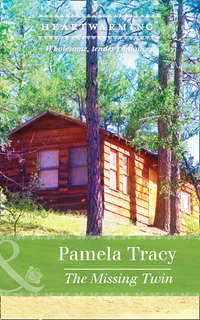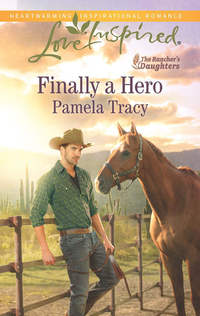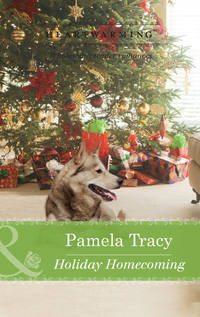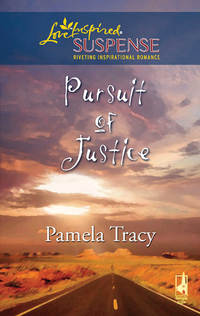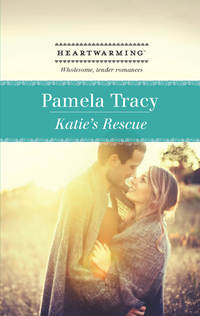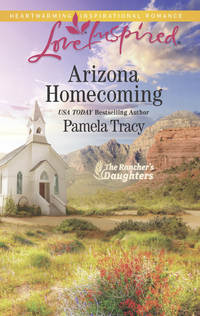
Полная версия
Small-Town Secrets
That had been a mere five years ago, and Yolanda had been attending college and working as a housekeeper for Ruth Dunbar, who used to be a Moore, owner of one of the other still-standing houses in Yolanda’s book.
Not Yolanda’s book—it was Chester’s.
Then Lucille had tried, “A little restaurant is easier to manage than a mansion. Come work for me.”
Yolanda’s hours had been flexible when she’d worked for Ruth. The pay had been good. And Ruth had treated Yolanda like a daughter who happened to help around the house.
Ruth had paid for most of Yolanda’s schooling because no one—not Yolanda, Gramma or Ruth—had known that Trina was a miser.
Eventually, Lucille said, “I’m wanting to retire. I’ll give you a good price.” But Yolanda didn’t want to own a restaurant. She loved books. They opened windows to adventure and took readers to new worlds. So if she was going to take a risk, she wanted it to be for something she loved.
Today, however, Yolanda’s adventure was the Scorpion Ridge courthouse, and it was nothing to get excited about. When the original building depicted in the book had burned down, only the iron doors had been salvaged. Adam was right, though. A bronze plaque was on the front wall, down a bit from the doors, and now partially hidden by a giant bougainvillea bush. Yolanda had to step off the walkway in order to read the words. They were weathered, time-faded and neglected. She brushed away a bit of mud that obscured the first word. She traced the engraving, so worn away by time that it could barely be read.
Erected in nineteen hundred and fifty because of Richard Ventimiglia and by Chester Ventimiglia, by his hard work and money.
She’d once known a poet who’d said, “I’d rather write a book than a poem. Much easier to get everything said.”
This plaque boasted sixteen words, and Yolanda immediately realized their depth. His hands not their hands. His money not their money.
“So you never noticed this before?”
Yolanda jumped.
Adam grinned, only one side of his mouth going up in a lazy, devil-may-care expression. “Didn’t mean to scare you. I was delivering a stack of advertisements—” he held up a flier with Snapp’s Studio pictured across the top and a twenty percent discount coupon on the bottom “—to the woman in charge of parks and recreation.”
Must be an easy job, Yolanda thought. Scorpion Ridge had one park and very little recreation. Maybe that was why it was debt-free.
“I didn’t hear you come up, and no, I’ve never noticed this before.”
“One of my art teachers brought us here when I was in fourth grade,” Adam said. “We used butcher paper and charcoal to make a rubbing. I still remember how what we re-created was clearer than what we could actually see.” He reached out a finger and traced what looked like bumps and grooves. “These are actually two angels holding a banner.”
“What does the banner say?”
“Impossible to tell. The teacher guessed that it was something about God. I never thought that, though. None of the letters resembled a G to me. And what we decipher of the letters didn’t form any biblical saying I could think of.”
“Oh,” she joked, “and in fourth grade you knew quite a few biblical sayings.”
“You’d be surprised.”
“I’m surprised that I’ve never heard of Chester, only Richard. And I can’t find any information about Chester. I searched last night, both online and among some of my grandmother’s books.” Yolanda peered at the plaque, now noticing the top. “You know, this could easily be restored.”
“At a cost, and no one really cares,” Adam pointed out.
“It’s part of our history.”
“Forgotten history. Maybe if there were some Ventimiglias still around...”
“That woman yesterday said she was visiting relatives of the Ventimiglias.” Yolanda truly wished Adam had spoken to the old woman, too. No one seemed to believe her. “Never mind. What do you think it means that this refers to Chester’s hard work and money but not Richard’s?”
“Huh?”
Yolanda read the plaque aloud to him, emphasizing the pronoun. “It sounds like Chester not only paid for but also helped build the courthouse.”
“Richard was a judge,” Adam remembered. “He’d have had money.”
“Yes, that’s in here.” Yolanda hoisted her backpack around to the front of her body and pulled out the dark blue book. She flipped to a page and read, “Richard Ventimiglia was born in Wisconsin, a graduate of West Point, class of nineteen hundred and one. He then went into the army as a second lieutenant before going back to school. This time he attended National University Law School, before coming to Arizona—which wasn’t a state yet—and settling here and becoming the town’s first judge.”
“Busy man.”
“There’s no mention of parents or siblings. That’s unusual. Almost all biographies have a family tree.”
Adam held out his hand for the book. Reluctantly, Yolanda turned it over. For some reason she felt protective of it. Adam started to skim through the pages, but almost immediately slowed his pace, studying page after page, his brow furrowing.
He was thinner now than when he’d left five years ago. Taller, too. He didn’t joke as much, either, but maybe that had to do with his dad’s illness and having to make a living instead of living to make art. His hair was the same, though—brown and windblown even when there was no wind. She’d always enjoyed looking up at him even when she hadn’t been able to make sense of him. He existed in a world she didn’t understand. He’d always done exactly what he wanted to do, taken risks and seemed to love life.
Maybe because he’d never wanted for anything.
“Where did you get this book?” he asked.
“I found it on a shelf in the children’s section. It wasn’t there earlier.”
“What do you mean?”
“I mean it’s not a book I cataloged. Until I picked it up from the shelf, I had never seen it before. I think the old woman left it.”
“I thought she was looking for a history book.”
“She was. At least that’s what she said. Now I believe she must have brought this one in with her and then accidentally left it behind.”
Adam flipped to the front cover. “No name and no publisher. This is a manuscript more than a book. But someone wrote it and did the drawings so precisely that at first glance, it looks published.”
“It’s amazing.”
“You’ve read it already?”
“No, just a few pages about Richard Ventimiglia. I had a hard enough time getting through that,” she admitted. “The print’s small and runs together. Made me wonder if I should get stronger glasses.”
“The drawings are well-done and quite detailed, especially for being so small.” He closed the book, studying the cover, back and spine. Then he added, “You think there’s something in here about Chester.”
“I hope.”
“I didn’t see his name anywhere.”
“Really, you skimmed that thoroughly?” Not a chance. Books were her world. She was a master reader and skimmer.
“No.” Adam closed the book tightly. “Though I did notice you’ve got some pages missing.”
Yolanda’s mouth opened. “You’re kidding.”
“No. It’s actually a common practice. Somebody probably wanted a drawing or two or three.” He grinned. “I’m certainly tempted to snatch this book from you and take a few pages. The pictures are not only vintage but also inspiring. Some of the facial expressions are hilarious.”
He sobered. For just a few moments he’d gotten excited—more like the old Adam, the one she knew so well—but then remembered something sad.
“Anyway,” he continued, “if you go into any library and look at the art books, you’ll invariably find many with pages missing. People find a drawing they like and rip it out. Usually nobody notices. I once went looking for an old book that had a picture of Johannes Vermeer’s Girl with a Lute. I went all the way to Gesippi because the librarian there was willing to hunt down and order the book I wanted. When it arrived, Vermeer’s painting was listed in the index but missing from the book.”
“It’s so odd that you like Vermeer,” Yolanda said. What really surprised her was his willingness to track down the book. It showed gumption and dedication.
“Because his paintings are so realistic?” Adam guessed.
“Yes.”
“Well, I like all artists who weren’t appreciated in their own time. As you don’t appreciate me.” His words were joking, but his eyes said something else. Something Yolanda hadn’t expected.
Not from Adam Snapp.
“Actually, I do appreciate you. Especially right now—you’ve pointed out two important details. One, the decorative top to the plaque. I didn’t realize that even existed. Then you figured out that pages are missing from the book.”
She thanked him again and he headed away from her and into the courthouse. Yes, she admitted that she was feeling pretty appreciative of him right now.
Adam Snapp looked darn good from the back.
* * *
ADAM FINISHED MAKING his deliveries by ten. It had felt strange, going back to some of his old haunts. The director of the Boys and Girls Club asked him if he’d be interested in teaching an art class on Saturday mornings. The principal at his high school handed over some literature about getting a GED.
His phone rang as he was leaving the Corner Diner.
Another call inspired by the town mural in Wildrose, Illinois. And this time the caller knew exactly how much Adam had been paid, and was even willing to offer a bit more plus expenses for living in the town of Targus, Mississippi.
This time Adam hesitated. His family needed the money, but they also needed him. Right now he couldn’t leave. Not until after the surgery, at least. But after that? Would he be more help to his family if he took the Mississippi job?
“Sorry,” Adam said, “I’m already employed elsewhere, and it will be at least a couple of weeks before I can even consider relocating.” It took a few moments to convince this guy, too. Finally, after Adam agreed to let the man know if the situation changed, Adam ended the call, stored it in his phone and headed for his minivan.
Two calls in one day. It certainly made him reevaluate his current job situation. He could tolerate teaching Tae Kwon Do classes and helping his parents for a while. He was enjoying working with Yolanda on the Victorian; he just wished she’d listen to his advice a bit more. Unfortunately, what she paid wasn’t enough to help with his father’s surgery.
He blamed himself for being broke. He’d squandered and enjoyed every minute of his time away from Scorpion Ridge. Until he opened his eyes one morning and found it all gone. Along with his girlfriend, new van and all his art supplies.
Adam knew his squandered money had been a huge mistake. Learning the hard way had always been Adam Snapp’s way. But it was time to reassess, think about his family, make better choices and find a way to stay in Scorpion Ridge for the next few weeks and still make enough money to help support his parents.
At most, they’d gain ten to twenty new students with this beginning-of-school enrollment push. The students would sign a long-term contract and pay by the month. There’d be no big chunk of change when his father needed it.
It would trickle in, instead.
Luke Rittenhouse, his boss at BAA, would let him sell his art in the habitat’s gift shop on commission, but only if it related to animals. Adam had been able to do animals easily. They allowed Adam’s quirky side to flourish. Of the five pieces of his that were on sale now at BAA, the bear had real teeth—provided by the habitat’s veterinarian—the peacock had real feathers—a simple matter really, he’d just picked them up as he walked the grounds—and the others all had something similar.
They were, however, pieces Adam had completed more than a year ago. Nothing new.
He remembered the passion he used to have. He wanted it back. Maybe he should follow Yolanda’s lead, take a community college class and come up with a business plan.
He already had a name when it came to murals, from the more than two dozen he’d done at BAA plus the five he’d painted in New Mexico, California and Chicago. They’d all been collages of small-town history. Each one had boasted a train, a long-dead high-profile town figure and whatever the town was famous for.
They’d been fun, but Adam had to admit his heart was no longer in it. Painting the history of a town he was a stranger to felt wrong.
The places he’d stayed during the few years he’d been away from Scorpion Ridge hadn’t been home. They’d been little more than glorified motel rooms. He’d come close to a home in Wildrose. The little apartment he’d shared with Stacey held good memories. He’d seen what it could be like to have someone by his side, someone who believed in him and shared his passion.
He also remembered how the refrigerator was never stocked, how few clothes were in the dresser drawers and that no photos of his family had been displayed.
It had still been a glorified motel room. He’d just not realized it.
Walking up the steps to the Victorian, he wondered if Yolanda felt at home here. She and her mother had lived in a tiny house near the edge of town. It had always looked perfect. He’d only been in it once. He remembered that the furnishings and decor appeared almost staged. Yes, that was the word. It was decorated as if a photographer were about to enter and take a picture.
It didn’t seem lived in at all.
Her grandmother’s Victorian had never looked perfect, at least not until now. Rosi Acura believed in toys on the porch, bikes in the yard and chalk drawings on the sidewalk. He’d helped her out a time or two with that. Yup, the Victorian was certainly a lot more elegant now than it had been all those years ago.
Back then, the neighborhood kids had thought it was haunted when in reality it was just the oldest house on the block and a bit run-down. The kids had dared each other to take a step into the front yard. Once, when he was ten, he’d run to the front door, rang the doorbell and then hightailed it back to his friends hiding behind a car parked in the street.
Yolanda’s grandmother hadn’t helped matters. Sometimes Rosi’d open the door and yell boo. But then she’d come out with cookies or popcorn and entice the kids into the yard again. Her presence, they pretended, would scare away any ghosts.
Yolanda had spent a lot of time here while her mother worked. She’d sit on the porch, with her nose either in a book or thrust in the air, all annoyed at the silly games boys played.
“You home?” he called, opening the door. In the neighborhood he’d lived in in Chicago, an unlocked door meant a negligent tenant. Here in Scorpion Ridge it meant come in, neighbor.
“Hey, Adam.” To his surprise, Rosi exited the kitchen. She wore a frilly brown, black and white shirt over black stretch pants. Normal enough attire until you looked at her feet. Black-and-white zebra slippers. BAA had a whole display of wild animal slippers, so these were probably a gift from her granddaughter.
“Yolanda here?”
“No, she’s in Phoenix shopping for dormers.”
He’d been the one to tell her that the four dormers in her living room were too small for the job they were performing, hence their deteriorating condition. She’d wanted to keep them; he’d urged her to replace them. Guess his pep talk about staying true to the home’s history paid off. She should have asked him to tag along, though. She’d have trouble finding the right ones without him.
Rosi followed him to the stairs, but she could no longer climb them. “What are you planning to do today?”
“Doors.” He paused at the bottom of the stairs, wanting to get busy yet wanting to talk. Finally, he set the promotional fliers on a table by the front door and sat on the fourth step up, his long legs stretched before him, and glanced at Rosi.
She still looked like she had back when she was hollering boo at him. Maybe her face was lined a bit more and maybe she walked slower. Even after all these years, she was the type of woman who took care of people.
She laughed and joined him. “I love this house. Yolanda loves it, too. You’re going to fix the rest of it up for us, right?”
“I’m gonna try. Upstairs, I’m pretty sure we’re looking at a lot of lead paint in all those doors. I need to see if they’re worth saving.”
“They are.”
That answer was no surprise as this was her house. But Yolanda wouldn’t be happy with how much more it would cost to renovate rather than replace.
“How long did you live here?” he asked.
“Since I was sixteen.”
“So, we’re talking the nineteen forties?”
“Yes. Late nineteen forties.”
“I spoke to my grandmother yesterday. She remembered the Ventimiglias. Said the same thing you did, that they weren’t very nice. Do you remember Ivy Ventimiglia?”
“I do. I remember those days like they were yesterday. Actually, I remember the past better than the present.”
“What do you remember about Ivy?”
For a moment he thought Rosi would withdraw. Instead, she said, “Well, she was a few grades behind me in school. I was in the same grade as your grandmother. Not that Ivy would have associated with us. Me, anyway. I think your grandmother might have spent some time with her. Position, family wealth, heritage, they all meant a lot more back then. Not always for the good.”
“What do you mean?” He had an inkling, but wanted her to spell it out.
“Ivy and your grandmother lived here on the hill, the rich part of town. Even if they didn’t like each other, and they didn’t, they had to pretend.”
That was a question he’d have to ask his great-grandmother. To his knowledge, GG liked everyone. “Did you and my grandmother get along?”
“Loretta was larger than life and nice to everyone, even those outside her station. She was also a little wild.”
“My great-grandmother, wild?” Adam could believe it.
“Wild and adored. She was homecoming queen.”
Adam hadn’t known that. “Yolanda’s pretty enchanted with the book that got left behind.”
“Book? What book?”
“Yolanda didn’t mention it to you?”
“I didn’t go to dinner with her. Then this morning when I got here she was already gone. What kind of book?”
“It’s like a published journal and has all kinds of town history events and even some drawings. This house is in it.”
Rosi shook her head. “Journals don’t mean anything. Most of us girls kept them back then. And not very much in them was based on fact. Best Yolanda stop thinking about the Ventimiglias. There are none left. Ivy had an older brother but he died in an accident when he was nineteen. Ivy never married.”
“You kept track of her? How do you know she didn’t marry?”
“It’s a small town, even though they moved, word trickled back. If she’d have married, I’d have heard about it. Weddings were a bit more important in those days, especially for the wealthy. It would have been in the paper, complete with pictures and pedigrees.”
“Why didn’t Ivy and Adam’s great-grandmother like each other?” In the quiet of the bookstore, Yolanda’s voice seemed loud, and both Adam and Rosi startled. Neither had heard the door open and close, yet here was Yolanda, holding a bag of groceries and looking as if she’d been standing there since the conversation began.
“It was a long time ago,” Rosi said. “Some say it had to do with Ivy’s brother. Maybe a little. Then, too, I don’t think Loretta had much respect for Ivy, and Ivy knew it.”
“High school’s hard on girls,” Yolanda said. “There’s always a cat fight or two. But they couldn’t have moved just because of that. If people moved after every teenage drama, there’d be a For Sale sign on every other house.”
“You’re jaded,” Rosi accused, “and way too practical. Ivy’s family made all the calls in this town. And we learned to deal with it. Plus, Ivy’s reputation had to be protected at all costs.”
Adam was amazed. “You’re kidding? Did she do something to ruin her reputation?”
“No, not that I know of. But even associating with the wrong crowd could cause talk. Ivy was told—no, ordered—who to talk to, where and when. Your great-grandmother was a bit ahead of her time. She used to tell Ivy to grow a backbone.” Rosi chuckled. Then she added, “For a while, I thought Ivy and Otis Wilson might get together.”
“Otis from across the street?” Yolanda couldn’t keep the shock from her voice.
Rosi merely smiled. “His family had position, but not enough to satisfy Ivy’s father. Your family—” she nodded at Adam “—lived in the house that’s now the Fremont Bed-and-Breakfast. They were Munros. Of course, that house has been remodeled and added onto so much that it’s hardly recognizable as one of the grand ole ladies that made up the houses on this street.”
Adam needed to ask his grandmother more questions. She’d talked about being a Munro, but until now, how special that was hadn’t occurred to Adam. Today she lived in a condo with a view of a golf course and a man-made lake. “But if their relationship wasn’t the reason the Ventimiglias moved,” he asked Rosi, “what was?”
“Some secrets are better left alone.”
“Gramma, you sound like someone on a Halloween show.”
“Ask your great-grandmother,” Rosi urged Adam. “See if she’s willing to tell you anything.”
“Don’t speak to her without me,” Yolanda demanded, “I’m starting to really get into this small-town history.”
“Sometimes,” Rosi said, “what’s dead and buried should stay dead and buried. Loretta knows that well.”
“Where did Ivy live?” Adam asked.
“Here. This was her house.”
CHAPTER FOUR
UNFORTUNATELY, GRAMMA ROSI had nothing else to say about Ivy. She did, however, have plenty to say about her own family. Yolanda noticed Adam listened intently, but then he’d not heard the story a million times.
Rosi’s father had worked for the railroad. He was gone more than he was home. He’d been a smart man, though, listening to the conversations of those who’d had more money than sense.
“My father got a job with the railroad after the black workers went on strike. It was dangerous because it meant he was going against the men who the jobs really belonged to, men who just wanted a living wage.”
“Your father was able to make a living wage, I take it.” Adam looked around the Victorian.
“My whole family worked hard, some in the field and some in other ways. My father, however, was one to take every opportunity. Because of his personality, as a porter and club car driver, he made pretty good tips. But do you want to know his best skill? It wasn’t making people smile. Nope.”
Gramma Rosi leaned forward, as if sharing something that shouldn’t be overheard. “My father was a great listener. It’s a skill most people don’t have. He had a family to support during a time when the economy had people running scared. I mean banks had failed, savings were wiped out and the wealthy were no longer counting their money but saying their prayers.”
“Gramma Rosi can’t remember what she had for supper last night,” Yolanda teased, “but get her started on Pearl Harbor, or when television went to color, or the first time she drove an automatic, and she hasn’t forgotten one detail.”
“Not everyone is as familiar with their family history as you are,” Rosi scolded. “I made sure you knew about your great-grandparents.” She fixed an eye on Adam. “Do you know the history of the Snapps?”
He shook his head. Loretta had married a Snapp. He was well aware how blessed he was to have an active great-grandmother still living. His mother’s family lived in Nebraska and never visited.
“Well, if you want to hear more about Ivy, first ask Loretta. See what she has to say about those long-ago days. She can share more than I can.” With that, Rosi turned and headed for the kitchen, muttering something about kids not caring enough about the past until the people who could tell them were gone. She pushed the kitchen door open with both hands. It let out a squeak of protest and creaked as it swung back and forth from her force.


